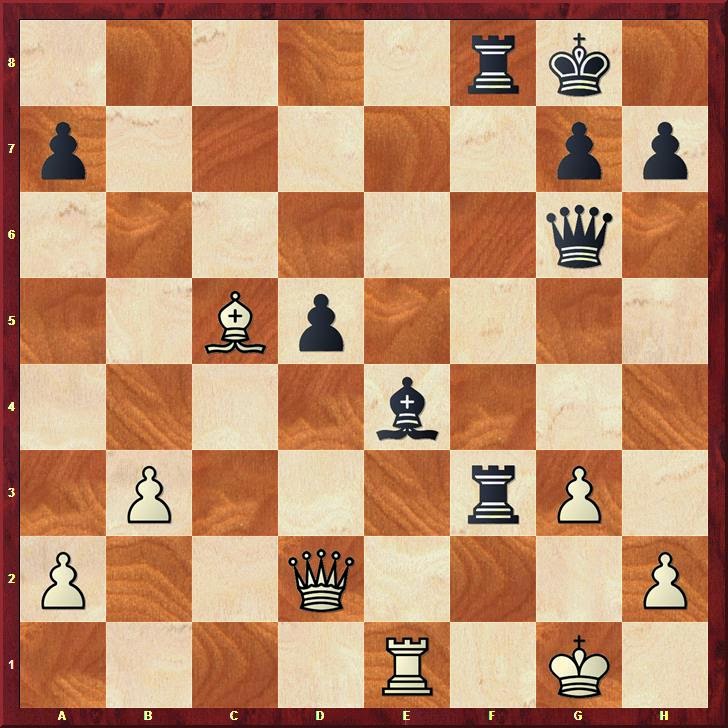Taking care of business is not always easy.
I have had a cold this past week, and today the congestion resulted in a persistent headache. It was not terribly severe, but it refused to leave. Combine the headache with with my penchant for photographing as many players as possible during the early rounds of Spokane's weekend tournaments, and I was in a bit of trouble before I became properly focused on my first round game.
I recall a conversation with my opponent between rounds during last year's Collyer Memorial. He drove up from Oregon to participate in the event. This game was the first time that we played.
My opponent opted for the Ponziani, which had been my new weapon last year. It made the beginning of the game psychologically difficult. I spent six minutes on my third move.
Beverly,Jacob (1462) -- Stripes,James (1872) [C44]
Collyer Memorial Spokane (1), 28.02.2015
1.e4 e5 2.Nf3 Nc6 3.c3 f5
I think that Paul Morphy might have played this move were he in my seat.
4.exf5 e4 5.Qe2N
Black to move
5...Be7?
I have learned playing the Ponziani that opponents often freak out, so, I freaked out and blundered a second pawn after intentionally sacrificing a first.
5...d5 seems best.
6.Qxe4 Nf6 7.Qc2 d5 8.Bb5 0–0 9.Bxc6
9.d4 was better.
9...bxc6 10.0–0
Black to move
10...Ne4
I was rushing to win back one of the pawns. Morphy, on the other hand, would find the best squares for his pieces.
11.d3
As expected, and best.
11...Nd6 12.Nd4
Here, I became alert to many threatened knight forks that interfered with my plans.
12...Qd7 13.Nd2
13.g4
13...Nxf5 14.Nxf5 Qxf5 15.Nf3 Bd6 16.Be3
16.Nd4 was better.
Black to move
16...Qg6
I don't know how I missed 16...Qh5 as that was part of my intent behind 15...Bd6. I spent seven minutes on Bd6 and two on Qg6.
17.Nh4 (17.g3 Rxf3) 17...Qxh4-+.
I considered 16...Qg4 17.Nd4 (17.h3? Qh5 18.Ne1 Qe5 19.g3 Bxh3-+).
17.Ne1
17.Nh4 Qh5 18.g3 Bh3-+.
17...c5 18.f4 Bf5 19.Qb3 c6 20.Rd1 Bg4
White to move
At this point in the game, I had used a full hour to my opponent's 25 minutes.
21.Rd2 Rfe8 22.Nc2 Rab8 23.Qa4
Black to move
23...Bf8
I spent fifteen minutes on this move.
23...Rxb2 occupied much of my long think. I was uncertain, and so played a move that seemed safer. 24.Qxc6 Rxc2 25.Qxd5+ Qe6 was not my likely move, although it is the only one in the position that leaves Black with an advantage.
24.b3 Rb7 25.Qa5 Bf5 26.Bxc5
Black to move
26...Bxd3
26...Rb5 was suggested by Darren Russell during the post-mortem. It is the computer's top choice.
27.Rfd1
27.f5 Bxf5 28.Nd4
27...Bxc2–+
Finally, I am winning. At this point I had 37 minutes left on the clock.
28.Rc1 Be4 29.c4 Bd6 30.g3 Bxf4 31.Rf1
Black to move
31....Bxd2
I didn't even consider 31...Bxg3 which leads to checkmate in seven moves.
32.Qxd2 Rf7 33.Re1 Rf3 34.Bf2 Ref8 35.cxd5 cxd5 36.Bc5
Black to move
36...Rxg3+
I found the checkmate in three. Indeed, I had been trying for it for several moves prior.
37.hxg3 Qxg3+ 0–1
In round two I had a more difficult game against the Caro-Kann that seemed roughly equal well into the middlegame. As I was organizing my forces to create attacking chances, I overlooked the danger of my opponent's counterplay. Then, he moved his queen to the wrong square, allowing me to exchange a rook for two minor pieces and end his prospects for attack.
With my bye in round three, I start round four tomorrow morning with 2 1/2, which is what I expect in weekend Swiss.



















Looks like you did a good job of steering the game into an asymetrical struggle, where some complications emerged. Probably one of the good recipes against a lower-rated opponent, even if your annotations sound like you were cautious during the game (not a bad thing in the first round - it's so easy to become overconfident)
ReplyDeleteThanks Laurent. I wasn't feeling particularly cautious when I played 3...f5, but two moves later when I was down two pawns, caution began to set in.
Delete